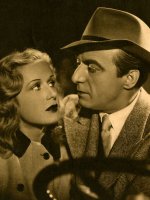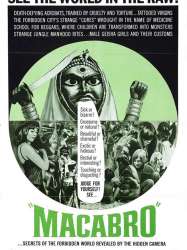Romolo Marcellini is a Director, Scriptwriter and First Assistant Director Italien born on 6 october 1910 at Montecosaro (Italie)

Romolo Marcellini (6 October 1910 – 3 June 1999) was an Italian film director and screenwriter. He directed 22 films between 1937 and 1969.
Il se rend en Afrique où il devient assistant-réalisateur pour le film Scipion l'Africain (1937) de Carmine Gallone et tourne lui-même Sentinelle di bronzo , son premier film en tant que réalisateur. Lors de la guerre civile espagnole, il réalise, entre 1937 et 1942 plusieurs films documentaires produits par la Luce (la société de production du cinéma de propagande fasciste) à la gloire des volontaires fascistes italiens venus en Espagne pour soutenir les Franquistes contre le gouvernement républicain espagnol.
Parmi les nombreux documentaires qu'il a réalisés au cours de sa longue carrière, il en est un qui retient particulièrement l'attention : La grande Olimpiade, tourné lors des Jeux olympiques qui se sont déroulés à Rome en 1960, avec lequel il a remporté le Prix d'or au Festival international du film de Moscou en 1961 et a été nommé pour l'Oscar du meilleur film documentaire en 1962.
Source : Wikidata
Romolo Marcellini

- Infos
- Photos
- Best films
- Family
- Characters
- Awards
Nationality Italie
Birth 6 october 1910 at Montecosaro (Italie)
Death 3 june 1999 (at 88 years) at Civitanova Marche (Italie)
Birth 6 october 1910 at Montecosaro (Italie)
Death 3 june 1999 (at 88 years) at Civitanova Marche (Italie)
Biography
Après un diplôme en économie, Romolo Marcellini commence à travailler en tant que journaliste et à s'intéresser au cinéma après avoir écrit le scénario du film Stadio (1934) de Carlo Campogalliani.Il se rend en Afrique où il devient assistant-réalisateur pour le film Scipion l'Africain (1937) de Carmine Gallone et tourne lui-même Sentinelle di bronzo , son premier film en tant que réalisateur. Lors de la guerre civile espagnole, il réalise, entre 1937 et 1942 plusieurs films documentaires produits par la Luce (la société de production du cinéma de propagande fasciste) à la gloire des volontaires fascistes italiens venus en Espagne pour soutenir les Franquistes contre le gouvernement républicain espagnol.
Parmi les nombreux documentaires qu'il a réalisés au cours de sa longue carrière, il en est un qui retient particulièrement l'attention : La grande Olimpiade, tourné lors des Jeux olympiques qui se sont déroulés à Rome en 1960, avec lequel il a remporté le Prix d'or au Festival international du film de Moscou en 1961 et a été nommé pour l'Oscar du meilleur film documentaire en 1962.
Usually with
Filmography of Romolo Marcellini (7 films)
Director
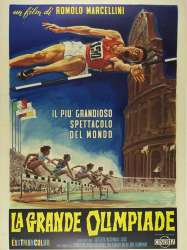
The Grand Olympics (1961)
, 2h22Directed by Romolo Marcellini
Genres Documentary
Themes Sports films, Documentary films about sports, Films about the Olympic Games
Actors Bing Crosby
Rating67%





142 minutes of the film speak of events and athletes that have characterized the 1960 Summer Olympics in Rome. From the absolute protagonist Wilma Rudolph, called the black gazelle, to Livio Berruti, the first white to win the 200 meters, to the deeds of Ethiopian marathon runner Abebe Bikila, who won the marathon racing barefoot.
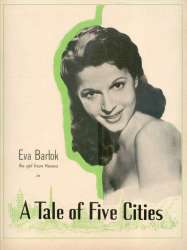
A Tale of Five Cities (1951)
, 1h26Directed by Emil-Edwin Reinert, Montgomery Tully, Irma von Cube, Romolo Marcellini, Wolfgang Staudte
Origin Italie
Genres Drama, War, Romance
Themes Medical-themed films, Films about psychiatry, Films about disabilities
Actors Bonar Colleano, Anne Vernon, Barbara Kelly, Gina Lollobrigida, Karin Himboldt, Claire Gérard
Rating52%





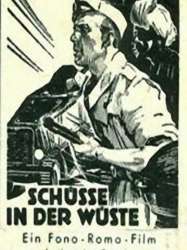
Sentinelle di bronzo (1937)
, 1h32Directed by Romolo Marcellini
Genres Drama, War
Themes Films set in Africa
Actors Fosco Giachetti, Giovanni Grasso, Doris Duranti
Scriptwriter

F.B.I. Operation Baalbeck (1964)
Directed by Hugo Fregonese
Genres Action
Themes Spy films, Transport films, Aviation films
Actors Rossana Podestà, Jacques Sernas, George Sanders, Folco Lulli, Leopoldo Trieste, Alfredo Varelli
Roles Story
Rating52%






The Grand Olympics (1961)
, 2h22Directed by Romolo Marcellini
Genres Documentary
Themes Sports films, Documentary films about sports, Films about the Olympic Games
Actors Bing Crosby
Rating67%





142 minutes of the film speak of events and athletes that have characterized the 1960 Summer Olympics in Rome. From the absolute protagonist Wilma Rudolph, called the black gazelle, to Livio Berruti, the first white to win the 200 meters, to the deeds of Ethiopian marathon runner Abebe Bikila, who won the marathon racing barefoot.

Sentinelle di bronzo (1937)
, 1h32Directed by Romolo Marcellini
Genres Drama, War
Themes Films set in Africa
Actors Fosco Giachetti, Giovanni Grasso, Doris Duranti
Roles Writer
Director
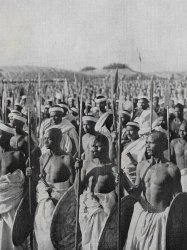 , 1h23
, 1h23Directed by Carmine Gallone
Origin Italie
Genres Drama, War, Historical
Themes Films set in Africa, Political films
Actors Annibale Ninchi, Camillo Pilotto, Fosco Giachetti, Francesca Braggiotti, Isa Miranda, Memo Benassi
Roles First Assistant Director
Rating53%





Le film raconte l'histoire de Scipion l'Africain (interprété par Annibale Ninchi) pendant la Deuxième guerre punique au III siècle av. J.-C., après la bataille de Cannes. Hannibal Barca et les Carthaginois avancent sur Rome, Scipion demande au Sénat de lui confier la province sicilienne afin de porter la guerre en Afrique. Il parvient dans un premier temps à repousser l'ennemi en Espagne. Scipion rencontre son allié Massinissa et doit affronter Syphax, roi de la Numidie et allié d'Hannibal. Syphax est défait lors de la bataille des Grandes Plaines, sa femme la reine Sophonisbe préfère se suicider plutôt que subir le déshonneur des vaincus. Les carthaginois appellent Hannibal pour les aider, c'est la bataille de Zama en 202 av.
 Connection
Connection
